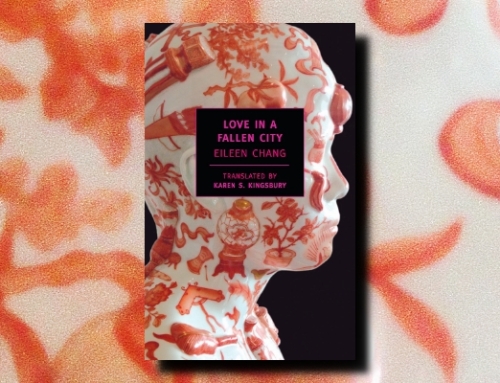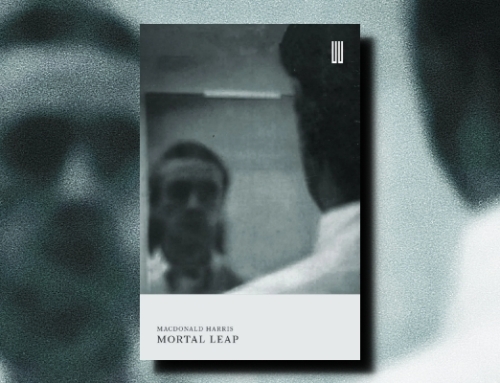Lemon by Cordelia Strube (2009) Coach House Books (2009) 260 pp
I try to avoid comparisons to Holden Caulfield as much as possible. Such is the abundance of potential heirs to the great first person narrator of The Catcher in the Rye that it is practically a cliché to label them as such, and it usually leads to disappointment anyway. Comparisons seem to come every time a book arrives where an angsty youthful protagonist with a biting voice goes on and on about the troubled times and how pointless it is to do anything about it, to even care. I usually feel that the heir apparent is really nothing more than a wannabe, though; any similarities are illusions created by the author’s heavy investment in voice; the books tend to fail to create a thematically coherent, richly textured book. While my heart still lies with The Catcher in the Rye, I think in Lemon Cordelia Strube has written that thematically coherent, richly textured book with an angsty protagonist and a biting voice. Readers of Salinger will recognize the undercurrent of death while innocence suffers in an ugly world. I’m done bringing up Holden Caulfield now, because Lemon, regardless of the faults I perceived, stands on its own, and I don’t want to lead anyone to believe it is just another derivative work.
To be honest, I’m not that patient with angsty teenage misery novels. The reason I read this one first upon learning of the Giller Longlist is, in part, because I wanted to get it over with. The cover shouts at me, and I assumed that by reading it I was more or less submitting myself to a spitting, bitter teen vent. I think a lot of these types of books sound the same; I’m prejudiced because I think the voice of an angsty teen is easy to mimic, though rarely feels genuine. I was fully prepared to dislike this book. In fact, while reading it, I actually kept thinking that eventually it would fall apart in my hands, validating my preconceptions. But that never happened.
Our disillusioned teen narrator is high school senior Limone, though most people call her Lemon. We meet her as she’s speaking to her school’s guidance counsellor:
‘If I hadn’t been reading about a Jewish girl in Nazi Germany, I might have let Zippy kill me.’ This gets Blecher scribbling in her notepad. I knew it would. She’s a psych-major-dropout-turned-guidance-counsellor, the only thing between me and another suspension.
Zippy is Lemon’s adoptive mother. Lemon doesn’t know her biological mother. And, after the near murder-suicide with Zippy, Lemon has been living with a surrogate mother named Drew. Drew, who was the school principal, is now agoraphobic after a student knifed her. Needless to say, Lemon’s life is filled with turbulence, almost to an unbelievable degree. In fact, one of my main gripes about this book is that so much tragedy, both that Lemon can do nothing about and that Lemon brings upon herself, happens to Lemon in a short period of time. However, every time I began thinking “this is too much,” I was brought back into the world Strube was creating, and it felt real and painful. Despite the excess, Strube has control, and it still worked for me.
So, now to explore some of the tragedy; it’s not just Lemon’s home-life. She sees tragedy everywhere. She’s fascinated by history and literature. Throughout the book Lemon offers biting critiques of women and men in literature from the works of George Eliot and Charlotte Bronte to Emily Dickinson. She throws out historical anecdotes from all over the world. People are ugly. In particular, men have been ugly to women, and women have felt the need to excuse it. She doesn’t think the world has gotten any better. Her three moms have all been damaged by the men in their lives (Lemon’s father), and at school she’s witnessing the hypersexualization of teenage girls as she watches her friends and enemies:
We used to talk about other things than sex and guys. We used to have confidence. We spun cartwheels and handstands. We got A’s in math.
Some of the problems come from a lack of love, others seem to have plenty of love but still end up seemingly missing “the security that love produces.”
This is a fairly miserable book, though the relief comes from a strange source. Lemon volunteers at the children’s cancer ward. There she gets moments where she doesn’t have to watch her friends “need to get attention from anything with a penis.” At the cancer ward she becomes very close to Kadylack, a young girl dying of cancer. Kadylak’s parents visit infrequently since they have each taken on more jobs so they can pay for Kadylak’s treatment. Strube creates a very loving relationship that illuminates the mother-daughter relationships Lemon reads about and experiences in her own life. The relationship goes both ways; here is a scene following one of the book’s most horrific events, an event Lemon narrates with a mixture of intimacy and distance:
I push open the door and it’s Kadylak in the bed. She looks up as if she’s been waiting for me. She holds out her arms and I hug her and start bawling, which is completely freaky for me. I don’t want her to see so I hide my face in the little curve between her neck and shoulder but then my ribcage starts to spasm and I’m making horrible sounds like I’m dying or something, and the tears are burning my eyeballs, which can’t be normal. Kadylak just squeezes me harder and we stay like that for ages. She’s even skinnier than before, I’m scared I’ll crush her. I want to tell her what’s happened but I know I can’t. I thought I was dealing with it pretty well. I ate Shredded Wheat and had a shower and put on clothes and all that.
Strube at one point took this mother-daughter relationship a bit further than I thought I was willing to go, but again she reigned it in and left me pensive rather than irritated. If she felt like she was risking it, for me it paid off.
Lemon is a fascinating, conflicted narrator. In an effort not to give in to false optimism she tends to err in the other direction, making life difficult for herself and others. She brings up their faults — and humanity’s — to assuage any guilt she might feel.
I’m suffering intense feelings of guilt and loss about everything — Kadylack, Mr. Paluska, my mothers. I even feel badly about duping Lund and Huff, and about not giving a goose’s turd about anything that’s going on around me. You’re supposed to care about stuff in your immediate vicinity but I’m sitting around worrying about girls from Thailand being sold as cash crops, being shipped in airless containers to New York brothels. I worry about women being burned because their dowry money isn’t enough, or because some hothead husband decides they’ve been unfaithful, or getting stoned to death for not wearing a burqa. But boys killing boys in my neighbourhood? A knifing in the school that’s got everybody in a flap? It happens.
This book certainly won’t appeal to everyone. The blunt, disrespectful teen vulgarity that is incredibly unattractive in real life saturates every page in this book. It works well, but it is hard going. The misery on the page is the kind of stuff we don’t want to believe happens, and we certainly don’t always hope to read a book about it. Strube makes her readers suffer. I was frequently put off — but I was always deeply enthralled. It was important discomfort. I looked for many excuses not to like this book — the cover, the name, the misdirected bitterness, the sometimes seemingly contrived and sometimes self-inflicted misery — but none of my misgivings prevented me from becoming emotionally involved.
Now, for those who think perhaps I was simply emotionally manipulated, perhaps you are right. I don’t think so, but I know others will feel differently upon reading the book. I was always ready to bail if I felt like Strube was simply tampering with my emotions. In the end I think she got a lot of it quite right. Lemon has a voice which I’ve heard before, and unfortunately her life and her responses to that life are all too real (though I hope not to familiar).









Thanks for reviewing this book. I’ve seen the cover a few times now, and it definitely is eye catching. Though at no point did it read “teenage narrator” to me, which I think is odd. With YA so popular these days you’d think the publisher would want to capitalize on that.
For me, the most interesting part of the books sounds like it would be Lemon’s opinions on history and literature (I kinda’ eat that stuff up). How much of a part of the book is that. I ask, because if invests more in it than a few throw away paragraphs used for character development I might pick it up. But if not, I’ll be honest, the book sounds incredibly manipulative.
(It might be a weird comparison, but I couldn’t help thinking of Steig Larsson’s TGWTDT as I was reading your review. In my mind that book was also emotionally manipulative – though in that case it had too much gratuitous sex and violence, often combined, to allow me to comfortably accept him as the great feminist the media seems to want to represent him as. There was a voyeuristic/fantasy quality about it… which is the ‘vibe’ I get about the seemingly non-stop misery and hardships Lemon faces).
As always – wonderful review!
Great questions, tolmsted. I’m glad to have the chance to clarify some points.
As for YA, I’m not 100% sure what that means with reference to a book like this. It has a young adult narrator, but its audience is broader (as should be the case with some YA novels). I don’t think this was written with a young reader in mind. It certainly is a book that would have parents in an uproar if their children were introduced to it at school.
As for Lemon’s opinions on history and literature, they are an integral part of the book and are found throughout. They underline most of what goes on in the books itself. They are entertaining and very interesting, even if you don’t agree with the perspective. From what you say above, I think you’d find it a strong aspect of the book.
As for emotional manipulation, I haven’t read Steig Larsson’s books, so I can’t comment on any similarities. My guess is that they are almost nonexistent. While reading Lemon I never felt that Strube was presenting it as a chance for voyeurism. As a narrator, Lemon is both gritty and yet distant. There’s certainly no revelling in detail when it gets violent or sexual. Lemon believes in portraying things honestly, but because of her own inability to really wrestle with some of what happens, her narration comes off genuinely closed. It felt very much like it feels when you try to talk to someone about something they don’t want to talk about but their way of getting out of it is to tell you it was no big deal. They’ll give cold descriptions of what happened, but they don’t allow that to touch them emotionally. It really is pretty fantastically done here.
When I think of being emotionally manipulated in this novel, I’m thinking of the children’s cancer ward. As a parent, I simply cannot read about that without immense heartache. I wondered if the book deserved to make me feel that way. Now, a few days after finishing the book, it is only getting better in memory. It balances very well.
Having read Lemon when it first came out; and having read Catcher in the Rye just recently, in response to all the comparisons made to it in reference to the Strube novel, I would suggest that, aside from both having teenage narrators, being written in the first person, and going on about how shitty life is, there really is no comparison.
While I enjoyed reading the Salinger, it was a novel of its time, and light in terms of conflict, the magic ingredient of fiction. Strube’s novel, on the other hand, seems to me to be an attempt to nail down much of what is wrong with 21st Century society; and Lemon a representation of someone who is desperately trying to understand why humans behave as stupidly as we do. Strube also seems to understand the importance of conflict, and her novel is rife with it. The key scene actually made me cringe and for most of the novel I was afraid for Lemon and what might happen to her. Having admired other Strube work (i.e. The Barking Dog), I would suggest that Lemon demonstrates that Strube is one of our most accomplished novelists, working at the peak of her form.
I certainly agree that this book is not derivative of Salinger, and I say as much above, but, besides the similarities you mention, there are other similarities in tonal structure. I think Strube did it brilliantly. Comparisons to Salinger usually are there because the work is not good, but here it is meant as a compliment. And then, I hope, she is given her due. Unfortunately, this book will probably never be read widely, but I hope I’m wrong there.
[…] another review that is on the positive side of neutral, check out Trevor’s thoughts at the Mookse and the […]